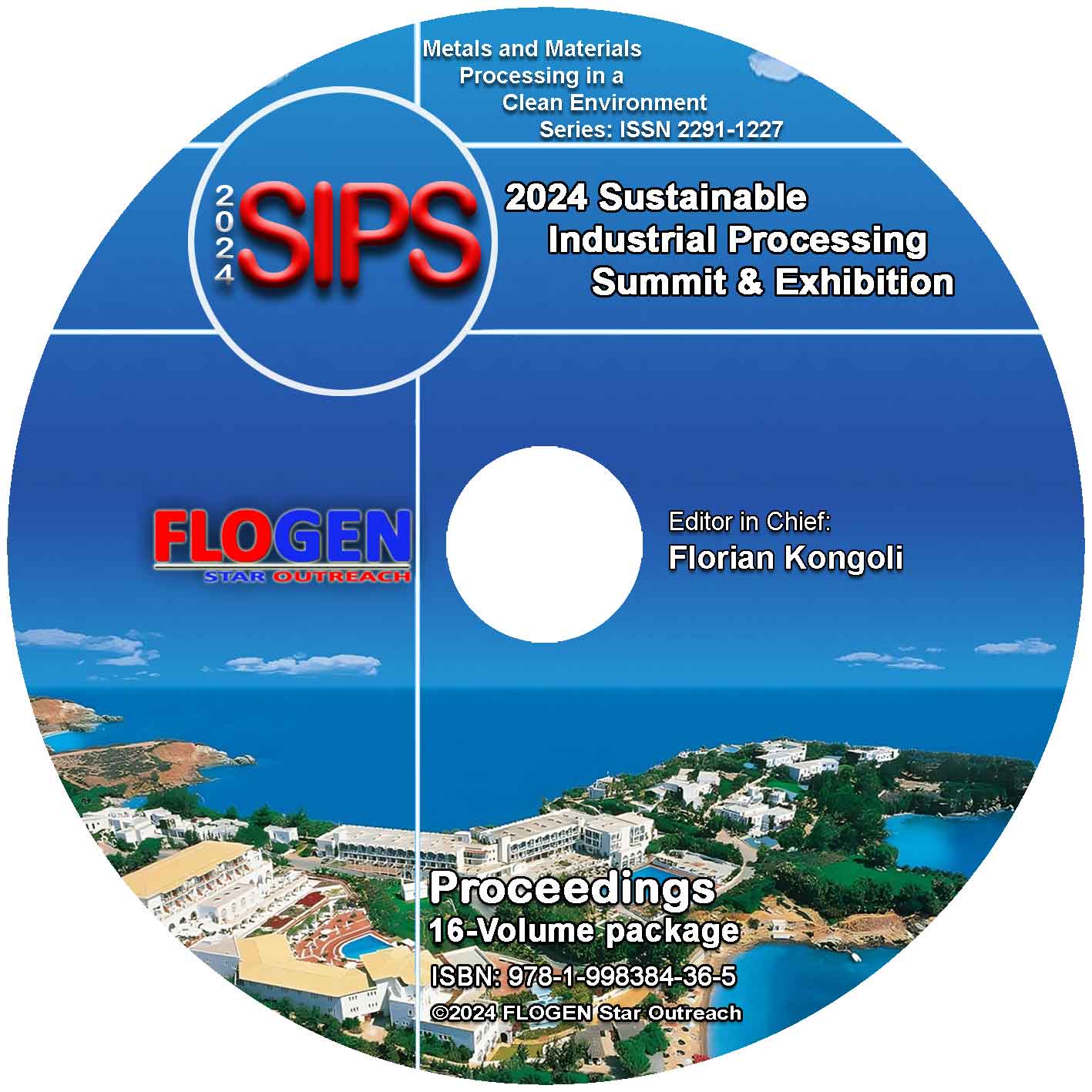2024 - Sustainable Industrial Processing Summit
SIPS 2024 Volume 15. Intl. Symp on Energy, Biochar, Cement, Carbon, Construction Materials, Agroforestry and Environmental
| Editors: | F. Kongoli, S.M. Atnaw, H. Dodds, M. Mauntz, T. Turna, H.W. Kua, M. Giorcelli, J. Antrekowitsch, G. Hanke, O. Adiguzel |
| Publisher: | Flogen Star OUTREACH |
| Publication Year: | 2024 |
| Pages: | 297 pages |
| ISBN: | 978-1-998384-32-7 (CD) |
| ISSN: | 2291-1227 (Metals and Materials Processing in a Clean Environment Series) |

CD shopping page
PERFORMANCE OF INDUSTRIAL WASTEWATER SLUDGE DERIVED BIOCHAR ON OF SOFT SOIL: AN INVESTIGATION INTO UNCONFINED COMPRESSIVE STRENGTH AND STRENGTH DEVELOPMENT MECHANISM
Muneeb Farooq1; Mohammad Yousuf Shah2; Khalid Muzamil Gani2;1NATIONAL INSTITUTE OF TECHNOLOGY, Srinagar, India; 2NATIONAL INSTITUTE OF TECHNOLOGY SRINAGAR, Srinagar, India;
Type of Paper: Regular
Id Paper: 334
Topic: 77
Abstract:
Soft soils provide the difficult ground conditions for construction and are characterized by low unconfined compressive strengths (<50 kPa) [1]. This study evaluated the performance of pyrolytic biochar (PBC) derived from industrial wastewater sludge in soft soils to enhance their unconfined compressive strength. Also, investigating the mechanism behind strength development was focused on. Different amounts of PBC (0%, 5%, 7.5%, 10%, and 12.5% by weight) were mixed with the soft soil, and the unconfined compressive strength (UCS) values were measured after curing periods of 1, 7, 14, and 28 days. The UCS values increased by approximately 4-5 times, while the stiffness values increased by around 5-6 times. Adding PBC also increased the alkalinity and water-holding capacity of the soil-PBC matrices, promoting pozzolanic reactions [2]. The free calcium oxide (CaO) in PBC disrupted the laminated soil structure and reacted with silica oxides (SiO2) and other aluminum silicates, resulting in a denser soil-PBC structure and the formation of Tobermorite, a hydrate mineral of calcium silicate [3]. Overall, the study concluded that PBC has the potential to be an effective alternative to traditional soil stabilizing materials, as it improves the unconfined compressive strength of soft soils.